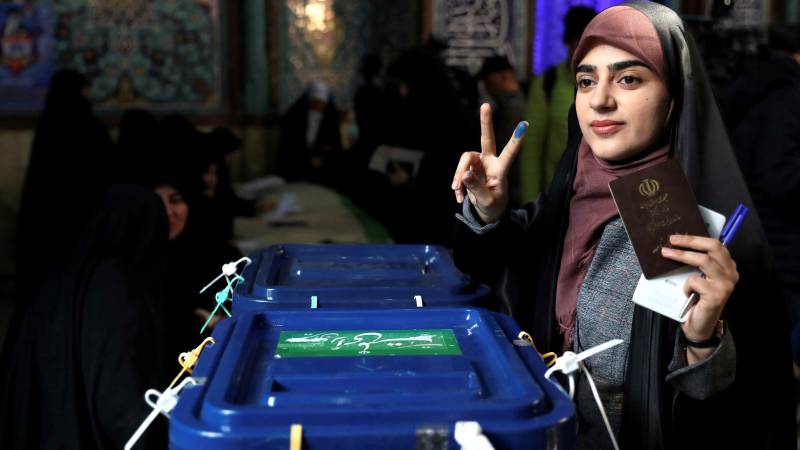Key facts about Iran's June 18 presidential vote

Stay tuned with 24 News HD Android App

Iranians will vote for a new president on June 18, with seven candidates in the race.
People will also elect municipal councils, while six candidates will also be chosen to join the Assembly of Experts which names, oversees and can dismiss the supreme leader.
Here are key facts to know about the polls.
59 million can vote
A total of 59,310,307 voters aged 18 and over, out of a population of 83 million, are registered to vote, according to the interior ministry. That includes more than 9.8 million in Tehran province alone.
Around 70,000 polling stations will be open, most of them in schools, mosques and some government buildings.
The ministry says this will be a tenth more than during the last presidential election in 2017.
Outgoing President Hassan Rouhani has said voting stations will also open from 7:00 am (0230 GMT) on Friday, until 2:00 am on Saturday.
These measures are hoped to avoid crowding, with Iran the country hardest hit by the coronavirus pandemic in the Middle East.
Due to the pandemic, authorities have also set up a phone app to allow voters to find the nearest polling station, and therefore avoid unnecessary movement.
Security forces mobilised
The interior ministry is tasked with organising the elections and announcing the results.
The powerful Guardian Council, a non-elected body made up of six clerics and six jurists which vetted the candidates, validates the results.
A total of 250,000 members of the security forces have been mobilised to ensure a smooth vote, and representatives of the interior ministry, the Guardian Council, and police will be deployed at polling stations.
Candidates can also request observers to be present.
Presidential election
Only seven candidates -- all men -- were approved to run by the conservative-dominated Guardian Council out of a total of 592, including 40 women.
If no candidate wins an overall majority on June 18, the two with the most votes will go head-to-head in a second-round runoff on June 25.
Voters can cast their ballots in an electoral district of their choice, but are not allowed to change districts in a second round.
Final results could be known as early as Saturday.
Municipal election
Municipal councils are elected every four years, but are overshadowed by the presidential vote.
However, analysts and local media watch closely for results emerging from key cities such as Tehran, Mashhad, Ispahan, Tabriz and Shiraz.
By-elections
Iranian will also elect six members of parliament -- including an MP for Tehran.
These lawmakers will replace legislators who have died or who have been invalidated since the last vote in February 2020.
Assembly of Experts
Twenty-three candidates are vying for six seats in the 88-strong Assembly of Experts, after the deaths of members.
An elected council of vetted clerics, the Assembly of Experts oversees the work of the supreme leader.
It has the authority to dismiss him, and a simple majority is enough to be elected to this body.
